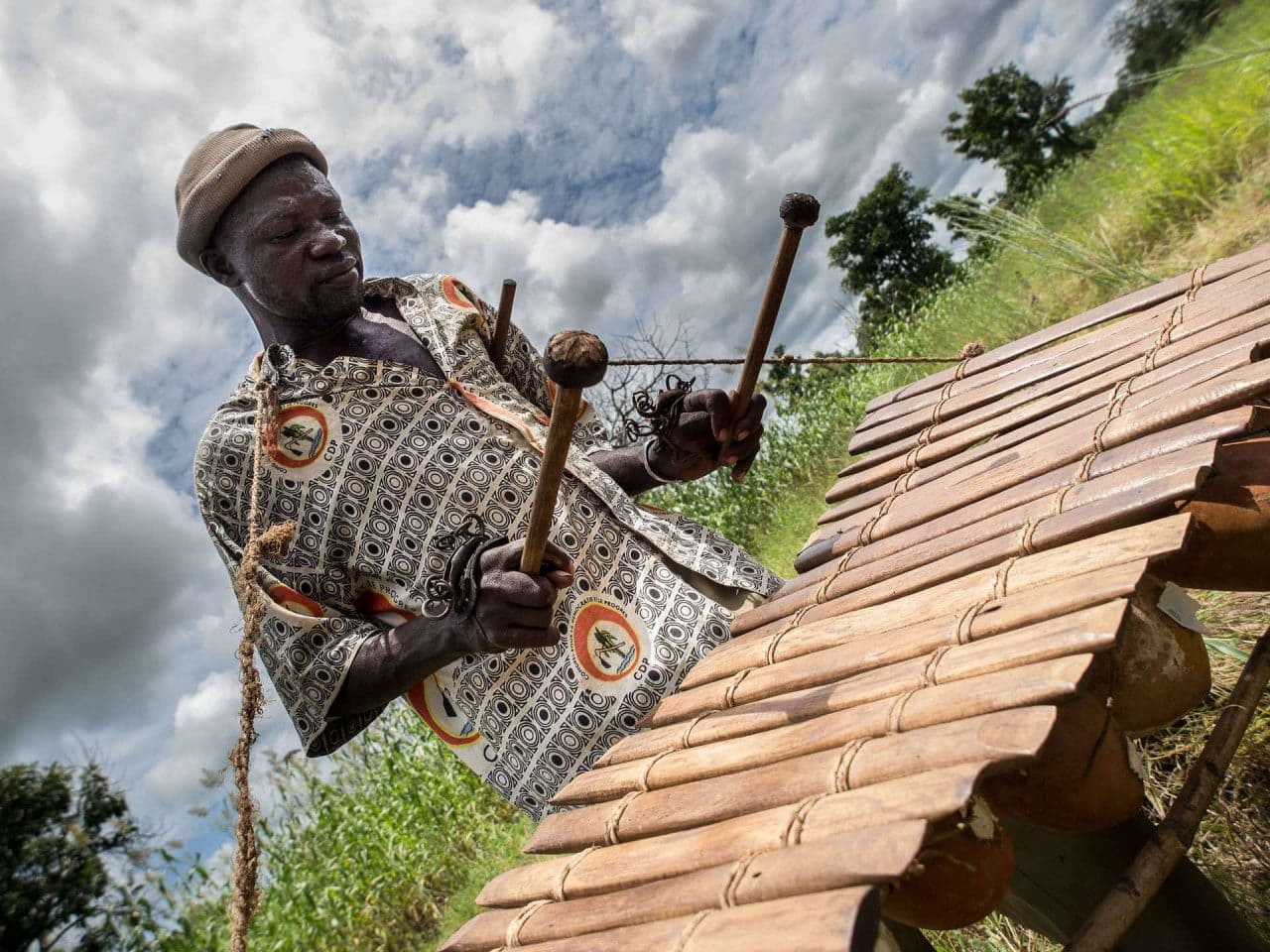The Speaking Balafon

In the past two weeks I have been presenting some video fragments from the footage I am working on for the documentary The Sambla Baan. First for a presentation in Italy and later for my course on West Africa here in Manchester, I selected two short scenes that show interactions between the musician playing the xylophone and another person. Among the Sambla of Burkina Faso, as in other parts of Africa, the peculiarity is that the musical instrument is capable of speaking, so the musician communicates exclusively through the notes of the baan, while the other person replies verbally.
The first short video is the outcome of an instance of collaboration between me, the other researcher Nicola Scaldaferri, and the musician Si-Juma Konaté. We had noticed that, while Si-Juma was playing for the farmers in the fields, he kept provoking certain young men with short messages that he would insert through the pattern of the melody he was playing. We then asked Si-Juma to insist on a specific man, who seemed to be especially responsive to his provocations, to see if I could manage to film the exchange. After a series of insults rung on the blades of the baan, including “son of a boiled man,” “needle-shaped seat” and so on, we got what we were hoping for, and I managed to capture it on camera:
The exchange is interesting as it shows the importance of a work ethic for the Sambla, evident in the insistence that there is no need to stop and the workers are not tired. Traditionally, a musician could praise a worker for his vigour and this would definitely improve his chances to find a wife. There are also references to funerals, which among the Sambla are separate from burials. Funerals take place annually, and are the most important festival in a village. They are happy occasions, with lots of music, dancing and drinking. The baan has a fundamental part in them, and a bit like in the fields the soloist can call a person, provoke them, ask for money. An individual who stops the baan to interact with the musician gets to be in the spotlight and if he can pay the musicians will play a song that is associated with his family, or with his profession, as a praise.
In the footage above the man enters the scene asking not to be called so insistently because he cannot afford it financially. A sort of bargaining takes place, and the parts agree on 500 CFA (about 0.60 GBP). It is interesting how the small speech that follows has to do with the pride of a farmer, and makes reference to a time in which the most respected activity was agriculture and the musicians would not farm and were completely dependent on others for their livelihood. It should also be remarked the role of the women around, belonging to the same family group of the musicians, who enhance the atmosphere and encourage the money givers.
All subtitling has been realised thanks to the research of Nicola Scaldaferri, with the translation and assistance of Si-Adama Traoré.
